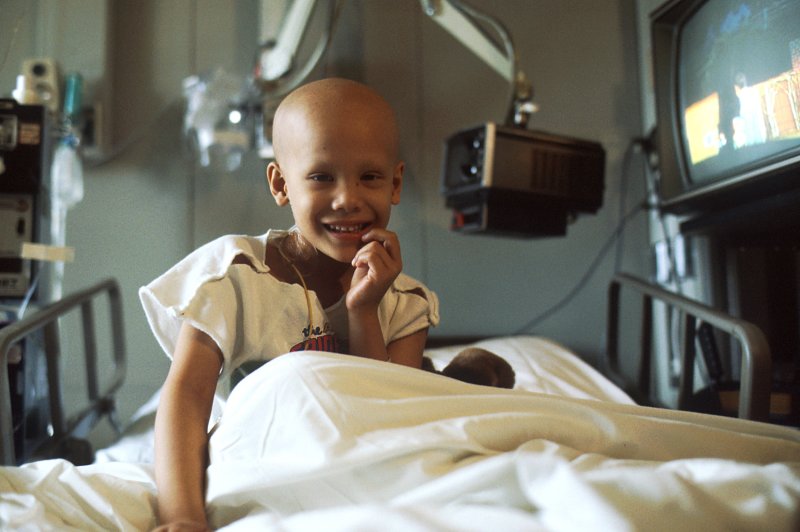The drug larotrectinib was effective in 93 percent of pediatric patients tested in a Phase 1 clincial trial, according to researchers at the University of Texas Southwestern. Photo by Bill Branson/National Cancer Institute
March 30 (UPI) -- A new cancer drug called larotrectinib was effective in 93 percent of pediatric patients tested in a Phase 1 clincial trial, researchers announced.
Researchers at University of Texas' Southwestern's Simmons Cancer Center in Dallas tested larotrectinib, which targets a fused gene called TRK found in many types of cancer in a clinical trial. The findings were published Thursday in The Lancet.
Larotrectinib is the first cancer drug to receive Food and Drug Administration breakthrough therapy designation for patients with a specific fusion of two genes in the cancer cell regardless of the type of cancer.
"In some cancers, a part of the TRK gene has become attached to another gene, which is called a fusion," Dr. Ted Laetsch, an assistant Professor of Pediatrics at UT Southwestern and lead author of the study, said in a press release. "When this occurs, it leads to the TRK gene being turned on when it's not supposed to be and that causes the cells to grow uncontrollably. What's unique about the drug is it is very selective; it only blocks TRK receptors."
These TRK fusions occur in a few common adult cancers, but they appear frequently in rare pediatric cancers, including infantile fibrosarcoma, cellular congenital mesoblastic nephroma and papillary thyroid cancer.
Larotrectinib, being developed by Loxo Oncology Inc., is part of class of molecules known as kinase inhibitors, which cut back on the enzymatic activity of a key cellular reaction.
The Phase 1/2 trials began in December 2015 and are scheduled to be complete in December 2019 with 92 participants.
"Every patient with a TRK fusion-positive solid tumor treated on this study had their tumor shrink," Laetsch said. "The nearly universal response rate seen with larotrectinib is unprecedented."
The study was conducted at eight sites in the United States between Dec. 21, 2015, and April 13, 2017, among 24 participants ranging in age from 1 month to 21 years old. Seventeen had the TRK fusions and seven did not.
All but one of the patients with TRK achieved an "objective response," according to the researchers. The one exception had tumor regression that did not meet the criteria for objective response.
The response to the drug has continued in the long term for most patients, researchers said.
"For some of the targeted drugs in the past, many patients responded initially, but then resistance developed quickly. To date, the response to this drug seems to be durable in most patients," Laetsch said.
One patient, 13-year-old Briana Ayala of El Paso, Texas, underwent surgery two years ago at Children Health in Dallas to remove a tumor and portions of the aorta wrapped around it. The cancer returned and no further treatment was available.
But she was a genetic match for the drug trial and after orally taking the drug twice a day, the tumor had shrunk and pain subsided.
Ayala and none of the other participants quit the study because of a drug-induced side effects. Other cancer treatments are usually associated with side effects.
Larotrectinib also had a 75 percent effective response rate among adults in a separate trial. The results were published in the New England Journal of Medicine.
Future trials are being planned for a similar drug for patients who developed resistance during the trials.















